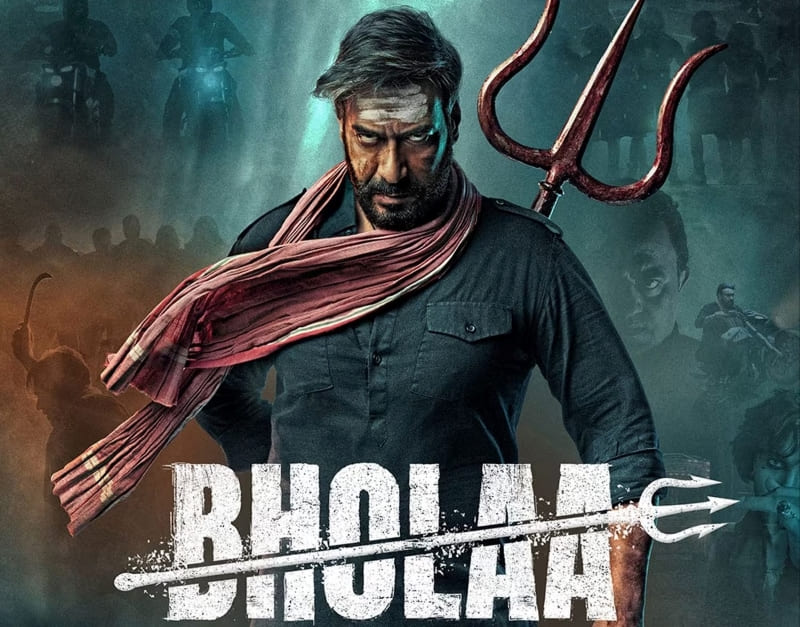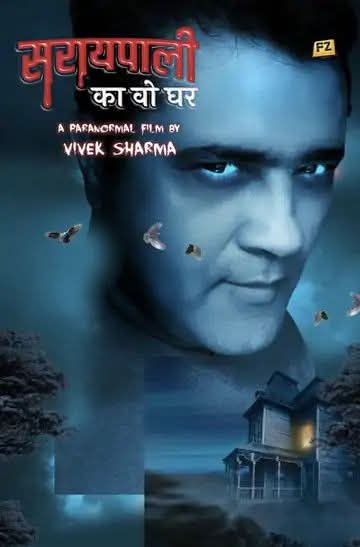TV & MOVIES
Box Office Blues: The Decline of Bollywood Films and the Challenges They Face in a World of OTT Content

The current state of Bollywood films at the box office has been a matter of concern for the industry for some time now. With a decline in footfalls to cinemas and a lack of compelling content that is suitable for the big screen, Bollywood has been struggling to draw audiences back to theaters.
Harry Johal, the Content Chief of Carry On Harry, media company, has shared his views on the reasons behind this trend. According to Johal, one of the primary reasons for the decline in box office collections is the competition from OTT platforms. With the rise of OTT platforms, viewers have access to a vast array of content options, including international films and web series, making it difficult for Bollywood films to attract audiences to the theaters.
Johal further explains that the lack of event films, which draw people to the theaters, is another reason for the decline. Many films that are being made today lack the potential to become event films, as they do not have the right combination of compelling stories and big-screen visuals. This makes it difficult for them to compete with other forms of entertainment.
The stories that these films deal with are also available on several OTT-based international films, which again contributes to the competition. The non-appealing faces that are being cast in these films are also failing to draw audiences to the theaters. Johal argues that even films like Pusha did not have big openings and gradually gained momentum due to word of mouth.
Despite these challenges, Johal believes that Bollywood can still regain its shine and draw audiences back to theaters. He suggests that the industry needs to focus on creating compelling content that is suitable for the big screen, casting appealing faces that can draw audiences to theaters, and differentiating itself from the content available on OTT platforms.
Rising trend of remakes ? Does this affects footfalls at box office
The availability of the original South Indian film on YouTube is certainly a factor that affects the box office performance of a Hindi remake. With the increasing accessibility of the internet and the popularity of online streaming platforms, viewers have more options for entertainment than ever before. This has led to a trend of Hindi remakes of successful South Indian films, which often have a built-in audience due to the popularity of the original.
However, the success of a Hindi remake also depends on factors such as the quality of the adaptation, the star power of the actors, and the marketing strategy. In the case of the Hindi remake of the South Indian film Karthi, titled Bhola, the film’s performance at the box office could have been affected by factors such as competition from other releases, the quality of the adaptation, and the star power of the cast.
While the availability of the original South Indian film on YouTube may have provided an alternative viewing option for some viewers, it is not necessarily the sole reason for the box office performance of the Hindi remake. Box office success is determined by a multitude of factors, and while the availability of the original film may have some impact, it is not the only factor at play.
In conclusion, the decline of Bollywood films at the box office is a complex mix of factors, including competition from OTT platforms, a lack of event films, availability of similar content on OTT-based international films, and non-appealing faces. However, with the right approach, Bollywood can still regain its shine and draw audiences back to theaters.
TV & MOVIES
Vivek Sharma Announces Trio of Unique Films Under Filmzone Creation Banner

Vivek Sharma Announces Trio of Unique Films Under Filmzone Creation Banner
December 30, 2025
Director Vivek Sharma, known for “Bhoothnath,” is set to produce three films under his Filmzone Creation banner, each exploring unique subjects. Speaking at the press meet, Sharma described the projects as a series of family-friendly films infused with elements of paranormal activity, comedy, and dark humor, showcasing both new and established talent. Notably, Sharma himself will take on lead roles in two of these ventures.
The first film, “Sarayapali Ka Woh Ghar,” delves into paranormal activities, drawing inspiration from real-life events. Sharma emphasized the film’s emotional and dramatic depth and said it is expected to go into production soon.
The second film, titled “Ka Kha Ga Gha Nanga,” offers a comedic take on the Hindi alphabet, portraying the lives of farming families and urban dwellers, reflecting the contrast between traditional hand pump usage and the modern reliance on sanitizers. The film will feature a cast of 15 children alongside prominent actors.
The third film, “Chullu Bhar Pani,” is a black humor comedy centered around a village grappling with a severe water shortage. The narrative follows the villagers’ naive yet humorous attempts to resolve their predicament. Sharma highlighted the intriguing nature of both the title and the storyline.
Sharma, addressing the media, expressed his commitment to providing a platform for emerging talent through Filmzone Creation, aiming to release two quality films annually. He also mentioned that the banner’s upcoming projects will feature a blend of newcomers and established stars.
Prior to this announcement, Vivek Sharma directed films such as “Bhoothnath” (released May 9, 2008), produced by B.R. Chopra’s production company and Ravi Chopra. The film starred Amitabh Bachchan, Shah Rukh Khan, and Juhi Chawla. The film is a family drama, fantasy, and horror mix that tells the heartwarming story of a friendship between a ghost and a child with humor.
‘Kal Kissne Dekha’ released on June 12, 2009, featured Rishi Kapoor, Jackie Bhagnani, and Vaishali Desai in lead roles. Produced by Vashu Bhagnani, this romantic science-fiction film revolves around a boy who can glimpse into the future.
‘A Game Called Relationship,’ released on February 14, 2020, was produced and starred Vivek Sharma. The film explores modern relationships, focusing on the dynamics of live-in partnerships and is intended to be a clean, family-friendly film.
#Bollywood #IndianCinema #VivekSharma #FilmzoneCreation #NewMovies #Paranormal #Comedy #DarkHumor #BollywoodNews #IndianFilms #HarryJohalTalkShowHost @balleballeradio BalleBalleRadio
TV & MOVIES
‘Dhurandhar’ Shatters Box Office Records: Rakesh Bedi Hails Film as a Cultural Tsunami

In a remarkable display of cinematic success, ‘Dhurandhar,’ starring Ranveer Singh and Akshaye Khanna, continues its reign at the box office, setting new benchmarks. Veteran actor Rakesh Bedi, who portrays politician Jameel Jamali in the Aditya Dhar-directed spy-action thriller, shared his insights on the film’s overwhelming reception. He recalled a prediction he made prior to the film’s release, stating, “‘Dhurandhar’ is not going to raise the bar, it is going to break the bar.” The film’s performance seems to validate Bedi’s bold statement.
Bedi also recounted an enthusiastic fan reaction on Instagram, illustrating the audience’s deep engagement with ‘Dhurandhar,’ where a fan expressed impatience for the sequel’s release.
In a video shared on Instagram, Bedi expressed his excitement, stating, “Friends, ‘Dhurandhar’ is showing no signs of stopping; it continues to run and run. Before the film’s release, I made a statement that ‘Dhurandhar’ is not going to raise the bar, it is going to break the bar, because people are going to see this film repeatedly, continuously, and that is exactly what is happening.”
He further added, “People are showering so much love, it’s like a tsunami. I would say this film is like my friend’s restaurant in Delhi, Juggernaut.”
Bedi expressed his gratitude for the widespread acclaim the film has received. He highlighted a particular fan’s reaction, recounting, “One lady told me that after watching the film, she was angry about why it ended. And after watching the film, she felt like she should go to sleep and wake up directly on March 19, when its next part will be released. Isn’t that amazing?”
He extended his appreciation to the director and the production team, noting, “This film has become an international rage, which I believe has never happened in Indian cinema history. Such rage, such love, such a big tsunami. I thank JioStudio, the entire team of ‘Dhurandhar,’ and especially the director Aditya Dhar. Hats off to you, Aditya. Love you, brother.”
As per Sacnilk, ‘Dhurandhar’ has amassed ₹517 crore net in its first 16 days. The film further garnered ₹38.5 crore net on a recent Sunday, elevating its domestic total to ₹555.72 crore. ‘Dhurandhar’ has surpassed the lifetime collections of Sunny Deol’s ‘Gadar 2’ (₹525 crore net), Shah Rukh Khan’s ‘Pathaan’ (₹543 crore), and Ranbir Kapoor’s ‘Animal’ (₹553 crore).
According to Comscore, ‘Dhurandhar’ ranked among the top five global releases in its second weekend. With an overseas gross of $18 million, the film has exceeded ₹750 crore worldwide as of Friday and is projected to join the ₹800-crore club imminently.
-

 Editor's Choice5 months ago
Editor's Choice5 months agoRanveer Singh and Deepika Padukone Reunite for New Romantic Comedy
-

 Editor's Choice11 months ago
Editor's Choice11 months agoReview: Rekhachithram (2025) – A Masterful Blend of Mystery and Redemption
-

 People's Choice6 months ago
People's Choice6 months agoBollywood in August 2025: A Landscape of Sequels, Social Commentary, and Star Power
-

 Authors and Artists5 years ago
Authors and Artists5 years agoCreate Your Miraculous Life: It’s Never Too Late Wendy L. Darling







